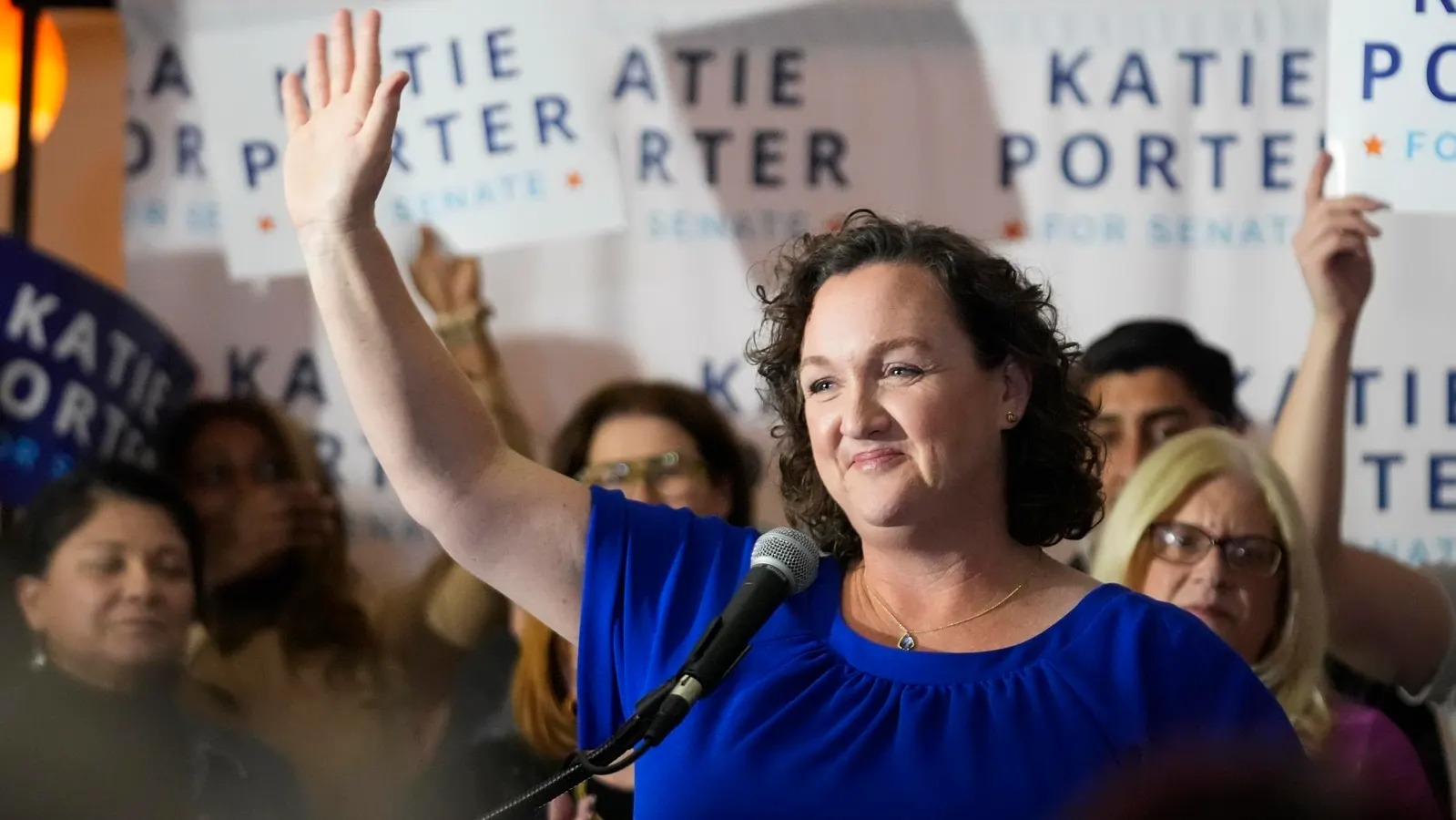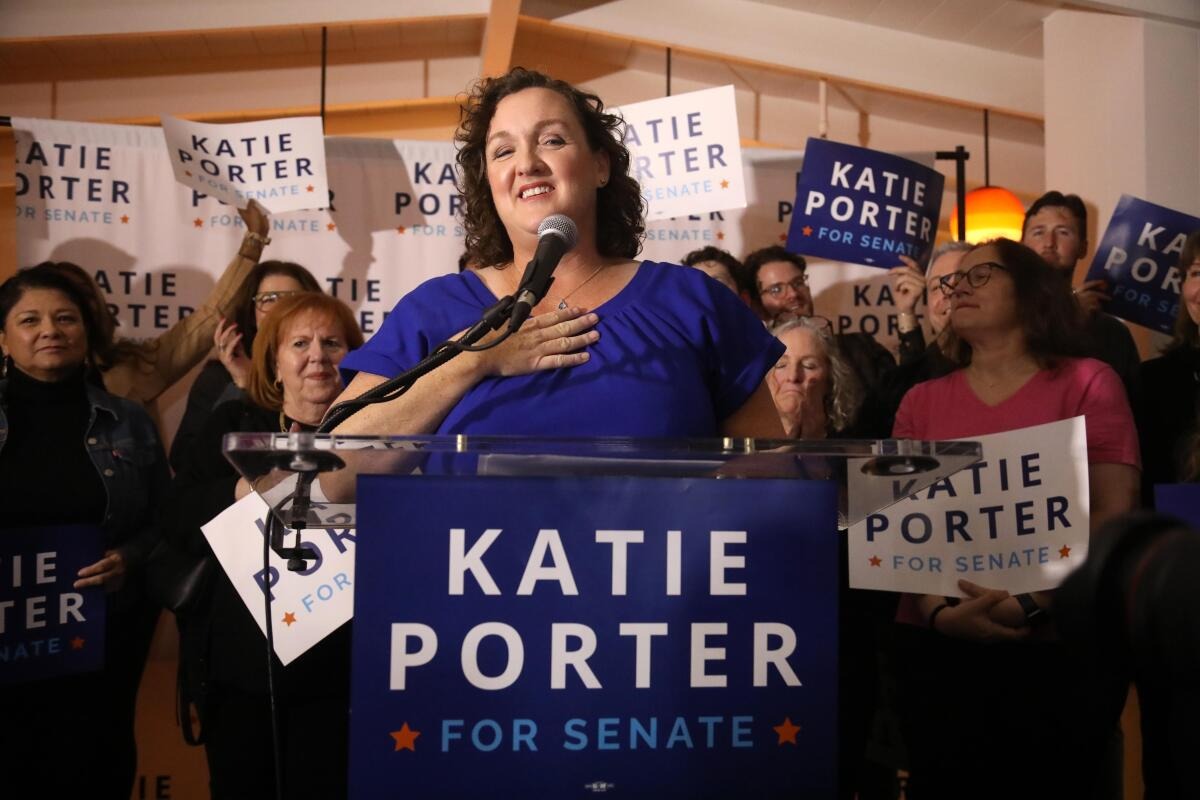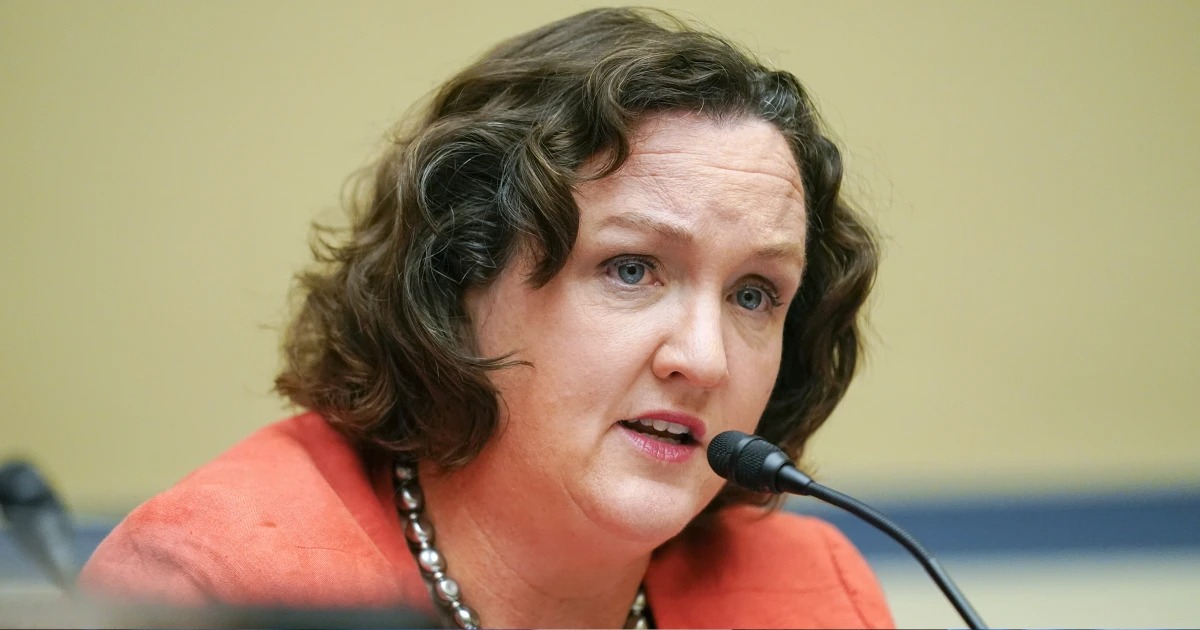Congresswoman Katie Porter (D-CA) recently expressed regret for her earlier statement alleging that the U.S. Senate primary election on March 5th was “rigged,” following significant backlash from both Republican and Democratic lawmakers.
During a podcast episode of “Pod Save America” released on Tuesday, Porter acknowledged that her choice of words had detracted from important truths about campaign funding and the integrity of California’s election system.
Porter’s Senate primary campaign was initially favored to advance alongside Congressman Adam Schiff (D-CA), with Porter drawing support from progressive voters and investing millions into her bid.

Katie Porter (Credits: Forbes)
However, the entry of former baseball star Steve Garvey (R) shifted the dynamics, leading to Porter’s decline in polls. Despite efforts to counter Garvey’s momentum, Porter’s support dwindled, and she ultimately trailed significantly in the primary results.
Following her defeat, Porter controversially accused state election officials of rigging the election in favor of Schiff and Garvey, sparking widespread criticism and ridicule. Despite facing pressure and scrutiny, Porter initially stood by her claims before eventually expressing regret during the podcast interview.
In her statement, Porter emphasized the competence and integrity of California’s election officials while highlighting the influence of undisclosed campaign funding on election outcomes. She underscored the need for transparency in campaign finance to ensure fair and democratic elections.
However, Porter’s appearance on the podcast failed to garner favorable reactions, with lawmakers from both parties criticizing her handling of the situation.

Katie Porter (Credits: Los Angeles Times)
Many expressed disappointment in Porter’s initial allegations of election rigging, suggesting that her knee-jerk reaction undermined her credibility and damaged her relationships with supporters and colleagues.
Analysts observed that Porter’s defeat stemmed primarily from strategic miscalculations and failure to adapt to shifting dynamics in the race.
While Porter focused on attacking opponents and raising concerns about campaign funding, her rivals, including Schiff and Garvey, adjusted their approaches and capitalized on opportunities to connect with voters.
As Porter grapples with the fallout from her Senate primary loss, commentators suggest that her defiant attitude and refusal to acknowledge her shortcomings may further erode her standing among constituents and jeopardize her future political prospects.
Amidst calls for introspection and humility, Porter’s handling of the situation underscores the challenges of navigating the political landscape with grace and resilience.
























